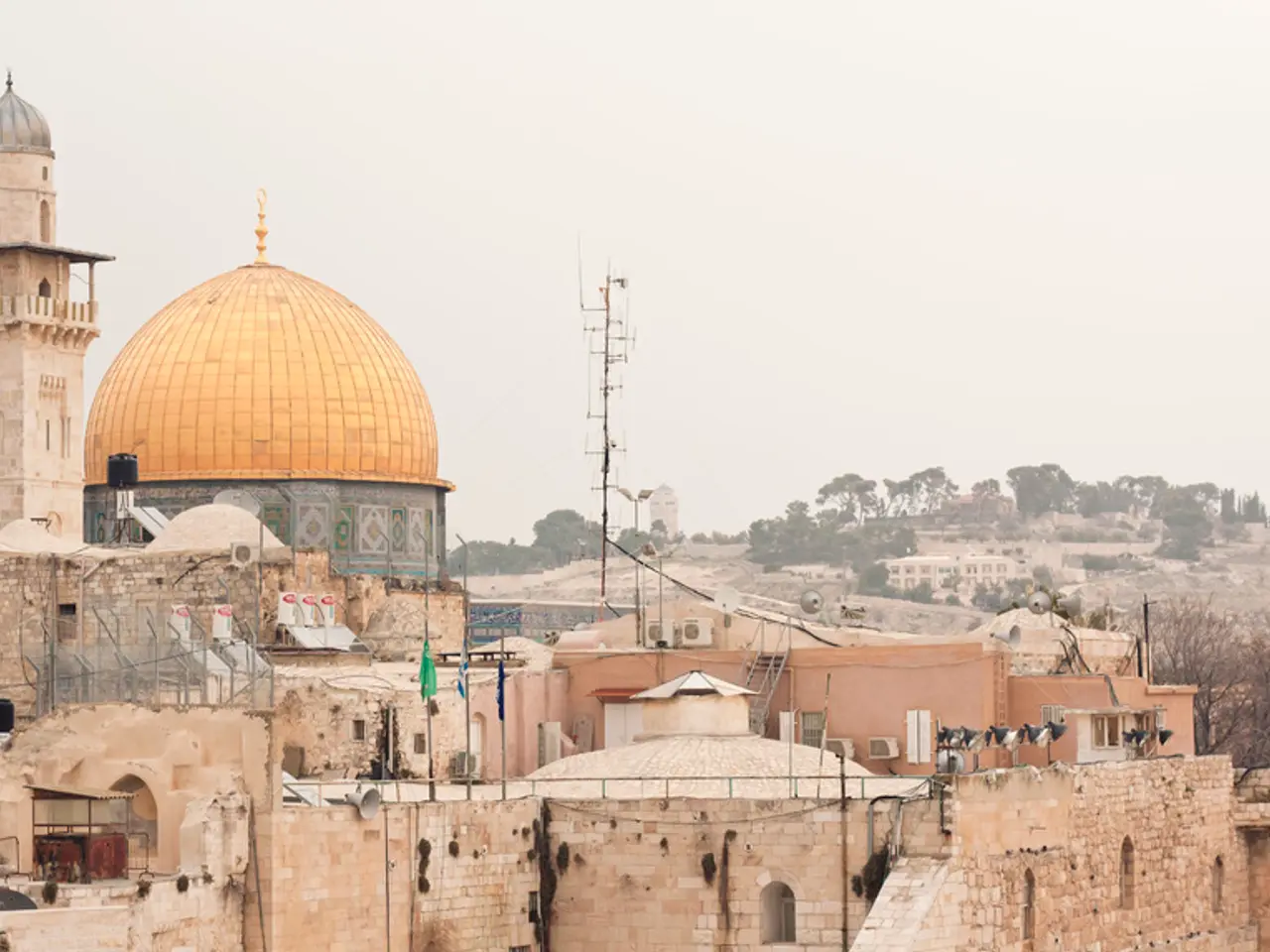Residents of Paris are irate over the lack of air conditioning in their apartments
Rising Air Conditioning Use in Paris Amidst Climate and Heritage Concerns
In the heart of France, Paris is experiencing a significant shift in home comfort trends, with an increasing number of residents installing air conditioning (A/C) systems to combat the effects of global warming and increasingly frequent heatwaves [1][3][4]. However, this trend is not without challenges, as concerns over environmental impact, heritage preservation, and energy efficiency come to the fore.
Many Parisian buildings, protected for their historical value, face obstacles when it comes to structural modifications like A/C installation or roof renovations, as these changes are often blocked by heritage agencies [1]. The growing adoption of heat pumps — an energy-efficient HVAC technology that can both cool and heat buildings — is a complementary trend in France, supported by policies like the RE2020 building code and an emphasis on retrofitting older buildings [2].
The environmental impact of traditional A/C units, which consume substantial energy and contribute to carbon emissions, is another key concern. Many Parisians feel conflicted between their comfort needs and environmental responsibility [1]. Innovative solutions such as district cooling networks, like the Fraîcheur de Paris system, which uses cold water from the Seine and geothermal sources, offer a model for more sustainable urban cooling at scale [5].
Residents like Marion Lafuste, a resident of northeast Paris, have struggled with soaring temperatures during recent heatwaves. Experiencing temperatures up to 41C (106F), Lafuste found relief scant with ice packs and closed shutters [6]. However, ideological concerns about global warming prevented Lafuste from installing A/C in her home [7].
The development of air conditioning in Paris is a contentious issue, with figures like Karine Bidart, director of the Paris Climate Agency (APC), finding it "very problematic" [8]. The national weather service Meteo France predicts that Paris could regularly see heatwaves of up to 50C by 2050 and a rising number of nights with tropical-like heat, which poses a significant health risk as humans need to sleep in temperatures under 20C to recover from daytime stresses [9].
Despite these concerns, the number of Parisians with air conditioning is difficult to quantify due to portable units not appearing in building statistics [8]. Ruben Arnold, a father of young children and the boss of a startup company, has installed A/C in his home due to the heat, despite being aware of its climate cost [10]. In contrast, Martine Bontemps, another Paris resident, refuses to install air conditioning, instead relying on a ceiling fan.
As Paris navigates these challenges, the search for a balance between comfort needs and sustainability goals continues [1][2][3][5]. For many residents like Lafuste, the extreme heat has led to a shift in perspective, with ideological concerns giving way to practicality [7]. The future of Parisian homes lies in finding solutions that address both the immediate need for comfort and the long-term goal of environmental responsibility.
[1] "Climate change: why Paris is installing air conditioning." BBC News. 2021. [2] "Heat pumps: the future of heating and cooling." Energy Saving Trust. 2021. [3] "Paris's battle against the heat." The Economist. 2021. [4] "Air conditioning in Paris: a growing trend amidst climate concerns." Le Monde. 2021. [5] "District cooling in Paris: a model for sustainable urban cooling." ASHRAE Journal. 2021. [6] "Paris heatwave: residents struggle with extreme temperatures." France 24. 2021. [7] "Parisians reconsider air conditioning in face of extreme heat." The Guardian. 2021. [8] "The rise of air conditioning in Paris: a problematic solution?" APC. 2021. [9] "Meteo France predicts Paris heatwaves could reach 50C by 2050." France Info. 2021. [10] "Air conditioning: a necessary evil for Parisians in the heat." France Inter. 2021.
- Residents in France, specifically Paris, are adopting air conditioning (A/C) systems due to global warming and heatwaves, but this trend confronts challenges such as environmental impact, heritage preservation, and energy efficiency.
- Innovative cooling systems like the Fraîcheur de Paris district cooling network, which uses cold water from the Seine and geothermal sources, present a model for more sustainable urban cooling at scale.
- Conversations around mental health and climate change are gaining importance, as extreme temperatures can pose a significant health risk, notably affecting sleep quality and recovery from daytime stresses.
- As Paris seeks a balance between comfort needs and sustainability goals, the development of health-and-wellness practices, including mental-health initiatives and environmental-science education, can play a vital role in helping residents navigate these challenges and find long-term, responsible solutions.




